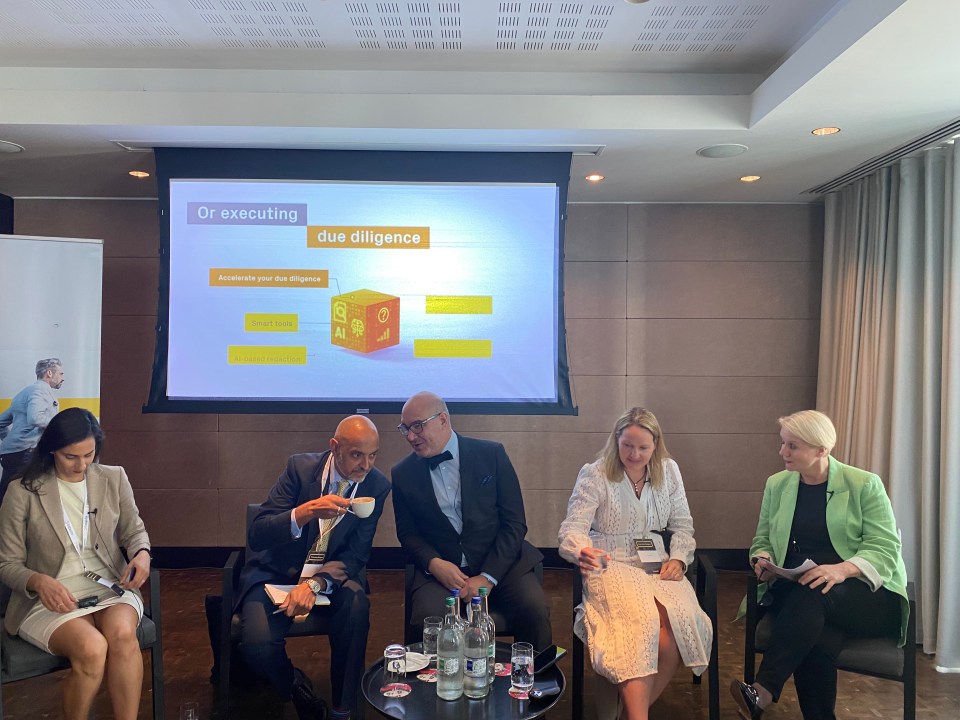Diversity goals: Improving trust encouraged 80 per cent of employees to share data voluntarily, PwC partner says

There is an increasing amount of trust when it comes to handing over personal data voluntarily, with a partner at PricewaterhouseCoopers (PwC) saying it has shot up from 15 per cent in 2018 to 80 per cent this year.
The comments came during an event hosted by Datasite featuring an expert panel discussion about improving Diversity, Equity and Inclusion (DEI) during mergers and acquisitions (M&A).
Speaking at the event on Wednesday hosted by business leader Julia Streets, PwC’s Lucy Stapleton, a Partner & UK Deals Leader, said improving trust was behind the voluntary handing over of data from employees.
She said the Big Four firm had socio-economic figures for under a quarter of its employees in 2018, so it was unable to analyse its workforce for diversity and inclusion purposes, and in particular, their ability to access opportunities.
Stapleton added PwC’s goal of having 70 per cent of data being disclosed was surpassed, with 80 per cent this year.
This comes after an internal campaign using the Social Mobility Commission’s measures, including the looking at value of leadership and transparency to confidentiality and language.

At the partner level, voluntary data sharing increased even higher to 85 per cent.
She told City A.M.: “We’ve learnt a lot over the past few years about the importance of encouraging employees to voluntarily share their data, which provides us with an invaluable tool in identifying and tackling areas where improvement is needed.
“Our action plans on gender, ethnic and socio-economic background diversity and representation are all based on data, which helps us to track the impact of our actions.
“Our gender and ethnicity pay gaps are moving in the right direction, and we hope to see the same for socio-economic background in the years to come.”
During the Datasite event, attended by around 80 people in central London, panelists included Daniel Winterfeldt QC, General Counsel, EMEA and Asia, at Jefferies, Angeli Arora, a Corporate Partner, Mishcon de Reya and Babur Mirza, the VP of Sales UK at Datasite.

Topics discussed ranged from improving DEI in business, dealmaking and through technology, as well as from an investor perspective, and right at the top of leading firms.
A particular focus of the discussion was around data collection, with Winterfeldt warning about improving the culture within dealmaking firms.
He warned against diversity targets becoming “box-ticking” exercises, and said companies should be looking to move away from “performative diversity”.
“Diversity doesn’t lead to better results” necessarily, he said. “You need inclusion. Just having people in the room doesn’t get you there.”
“You need voices in the room too”.
To get there, Winterfeldt spoke about pinning down what is meant by diversity, adding that it shouldn’t just be about a “headcount”. It also needs to be looked at in terms of who gets promotions, and digging into data to find out who can progress, regardless of background.
Mirza mentioned that there is a lot more data being uploaded because the need for greater disclosure is being requested by the buyside. “This greater sense of disclosure means that greater due diligence is needed on the documentation to ensure all risks associated with matters around DEI and ESG are addressed as early as possible. Enhanced search functionality and AI technology goes a long way to ensure all levels of disclosure are addressed to determine the risks to the deal.”
This is key because how organizations address DE&I can also influence the outcome of a proposed deal. More than a fifth (23 per cent) of UK M&A professionals surveyed by Datasite said they have seen deals fall apart because of DE&I-related issues.
Arora added that a new younger generation “thinks differently” and they “don’t just want financial gain from companies.”
“They want other things”, referencing the rise in ESG related shareholder activism. On corporates with DEI problems, she noted there were “two schools of thought. Either investors can stay away from them because of the reputational risks. Or, they can really get stuck in and drive change through their shareholder powers. It’s interesting how data on diversity could get used by investors for such purposes.”
The fact a younger generation wants things other than just financial gain is positive, “but now the challenge is, what do we do with the great momentum we have? And how do we ensure that it actually results in proper change ..to the point where dinosaur thinking becomes the minority.
“That’s, I think, where we’re at.”
